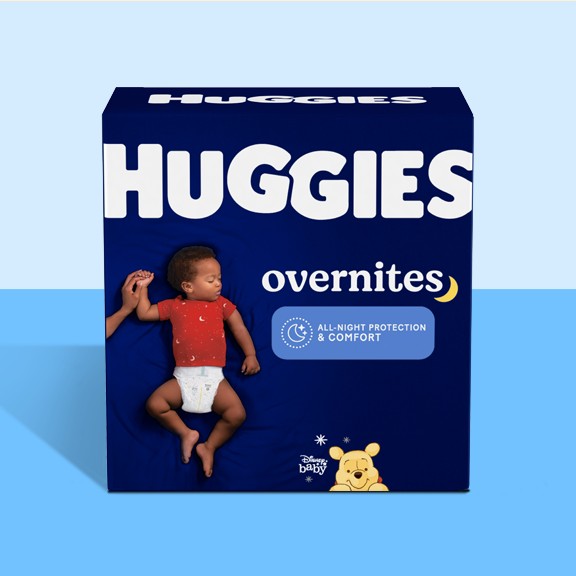Growth and development at 19 months old
Your toddler is likely to grow more during the spring and summer and slow down a little during the cooler months of the year. They will go through periods where their growth seems to plateau, and then it seems like someone flipped the switch and away they went into another growth spurt. Stops and starts—also called intermittent growth—seems to be the usual pattern of development over the toddler years.
Play and interaction at 19 months old
Keep gates across doorways and stairs. Close doors if you want to limit their access to certain rooms. Teach them what’s involved in climbing and descending stairs and make sure they always go down backwards. Show them how to use the handrail and encourage them to wait for you to come be with them.
Although this is an independent stage for your toddler, they will still need your help to engage in play. You’ll become very used to hearing your toddler calling you throughout the day now (and perhaps the night), which is why many parents develop a touch of selective deafness at this time.
Constant calls for “mama” or “dada” at various levels of intensity will make you feel as if you are at their beck and call. They will also need comforting when life just gets a little too much for them. Just when you think your toddler is growing up too quickly, they will remind you that they are still very young.
What you can expect at 19 months old
You’ll have a tired little person in the household each night, and by 7PM or 7:30PM, they will be looking for their bed. Most toddlers still need around 12 hours sleep each night; without it, they’re pretty cranky. When combined with a nap of 1.5 to 2 hours, this is enough for most toddlers to get through their day with sufficient enthusiasm.
Expect your toddler to be involved in everything you are these days. They will want to help you and be part of your world. Gone are the days of you being able to leave an orderly pile of papers or a project sitting in a corner. Before you know it, your piles will be rearranged and relocated to the farthest reaches of the house.
Food and nutrition at 19 months old
Limit main meals to around 20 to 30 minutes and snacks to around 10 minutes. Your toddler will lose interest in eating after a reasonably short time so be sensitive to their cues that they have eaten enough. Turning their head away when you offer more, saying no, trying to climb out of their booster seat or highchair, or pushing the plate away are clear signs that they have had enough. Avoid offering your toddler treats or rewards of food. This can set up poor eating patterns which can lead to problems later.
If your 19-month-old is drinking too much milk, it will impact on how much food they want to eat at mealtimes. More than 2 to 3 cups per day can be too much. If you are still breastfeeding more than 3 to 4 times a day it will impact your toddler’s appetite. If you’re finding your toddler is breastfeeding through the night and is picky with their meals then you would both benefit from stopping these overnight feeds and limiting breastfeeds to the daytime. Toddlers whose main source of nutrition is breastmilk tend to be low in iron and can develop anemia. Because of this, their appetite is reduced further. Talk with your pediatric healthcare provider about your toddler’s diet to make sure they are growing as they need to be.
Keeping your toddler healthy at 19 months old
Ear infections are also common in toddlers whose Eustachian tubes are shorter. If you’re finding your toddler is prone to middle-ear infections be reassured that most children grow out of this problem as they grow.
If you are worried about your sick toddler, if they refuse to drink, if they are vomiting, or if they are especially sleepy, have them checked by a doctor. Breathing difficulties or an elevated temperature are also signs that they need to be seen. They may also seem just “not quite right” or you may have a sense that they aren’t well. It’s important to follow your own instincts and have them checked if you are concerned. You are the expert when it comes to your toddler, and you know them better than anyone else.
General tips
If your toddler is prone to constipation, make sure they are drinking plenty of water. Reluctant water drinkers can often be persuaded to drink when in the bathtub or from a special or novelty cup.
Get your toddler a little bike or tricycle to wheel around on. Learning how to coordinate their leg movements and balancing will come with time. Take them to a park or a quiet part of a local bike path, but don’t venture too far from your car. Their legs will tire after a short time and you’ll be left carrying the bike.
Watch the toys your toddler has access to and make sure they’re suitable for this age. This is still an oral period of development and your toddler is likely to want to bite, chew, suck, or gnaw their way through the contents of their toy.
The information of this article has been reviewed by nursing experts of the Association of Women’s Health, Obstetric, & Neonatal Nurses (AWHONN). The content should not substitute medical advice from your personal healthcare provider. Please consult your healthcare provider for recommendations/diagnosis or treatment. For more advice from AWHONN nurses, visit Healthy Mom&Baby at health4mom.org.










